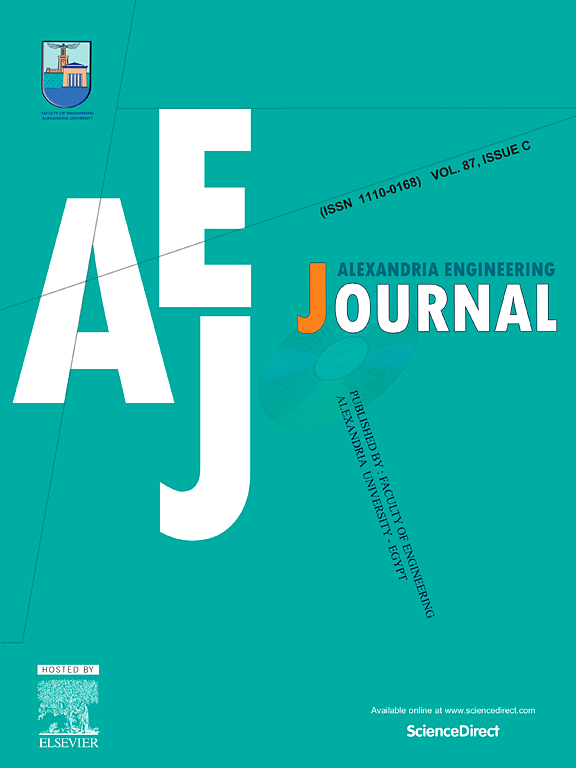基于cnn的基于5g辅助联邦学习的医疗行业5.0癌症预测方案
IF 6.2
2区 工程技术
Q1 ENGINEERING, MULTIDISCIPLINARY
引用次数: 0
摘要
医疗保健行业5.0通过整合人工智能(AI)、物联网(IoT)和基因组学来提供个性化和以患者为中心的医疗保健,见证了一场变革性的变化。它优先考虑全面健康,对肿瘤、癌症等慢性疾病采取积极主动的战略,以及参与者之间的有效合作。使用机器学习和深度学习方法进行癌症预测已经做了很多工作。然而,如何通过限制数据共享来保护数据隐私和安全还有待充分探索。因此,本文提出了一种基于卷积神经网络(CNN)的癌症预测方案,即医疗保健产业5.0背景下的CNN- cps。该方案利用了5g辅助联邦学习(FL)的功能,这是一种革命性的方法,用于预测具有数据隐私、安全性和限制数据共享的癌症发生。然后,它还利用来自分散系统的模型数据来提高效率。通过利用5G网络的速度和效率以及FL的协作性质,可以实现精确的癌症预测,同时维护敏感数据的机密性。这种技术的整合有可能在工业5.0时代显著重塑癌症诊断和治疗方法。在这里,5G可以实现跨远程数据中心的实时数据交换,具有快速传输数据的能力和低延迟的连接,从而实现更有效和精确的模型训练。因此,本研究检验了FL来预测乳腺癌,并结合了来自多个客户的优化器权重,以不断提高整体模型的性能。实验结果表明,基于低延迟(40.77%)、准确率(75%)和损失(0.54)等几个参数,CNN-CPS与现有方法相比具有较好的效果。本文章由计算机程序翻译,如有差异,请以英文原文为准。
CNN-based cancer prediction scheme using 5G-assisted federated learning for healthcare Industry 5.0
Healthcare Industry 5.0 has witnessed a transformative change by incorporating Artificial Intelligence (AI), Internet-of-things (IoT), and genomics to provide individualized and patient-centered healthcare. It prioritizes comprehensive health, proactive strategies for chronic diseases like tumors, cancer, etc., and effective cooperation among participants. Much work has been done for cancer prediction using machine learning and deep learning approaches. However, it has yet to be fully explored to protect data privacy and security by limiting data sharing. So, this paper proposes a Convolutional Neural Networks (CNN)-based Cancer Prediction scheme, i.e., CNN-CPS within the context of Healthcare Industry 5.0. The proposed scheme harnesses the capabilities of 5G-assisted Federated Learning (FL), a revolutionary method for predicting cancer occurrences with data privacy, security, and limiting data sharing. Then, it also leverages model data from dispersed systems to boost efficiency. By capitalizing on the speed and efficiency of 5G networks and the collaborative nature of FL, precise cancer predictions can be attained, all while upholding the confidentiality of sensitive data. This integration of technologies has the potential to significantly reshape cancer diagnosis and therapeutic approaches in the Industry 5.0 landscape. Here, 5G can enable real-time data interchange across remote data centers with rapid transmission of data capabilities and low-latency connectivity, enabling more effective and precise model training. Hence, this study examines the FL to predict breast cancer and combines the optimizer weights from several clients to continually enhance the performance of the overall model. The experimental results show the efficacy of the CNN-CPS compared to the existing approaches based on several parameters like low latency (40.77% improvement), accuracy (75%), and loss (0.54).
求助全文
通过发布文献求助,成功后即可免费获取论文全文。
去求助
来源期刊

alexandria engineering journal
Engineering-General Engineering
CiteScore
11.20
自引率
4.40%
发文量
1015
审稿时长
43 days
期刊介绍:
Alexandria Engineering Journal is an international journal devoted to publishing high quality papers in the field of engineering and applied science. Alexandria Engineering Journal is cited in the Engineering Information Services (EIS) and the Chemical Abstracts (CA). The papers published in Alexandria Engineering Journal are grouped into five sections, according to the following classification:
• Mechanical, Production, Marine and Textile Engineering
• Electrical Engineering, Computer Science and Nuclear Engineering
• Civil and Architecture Engineering
• Chemical Engineering and Applied Sciences
• Environmental Engineering
 求助内容:
求助内容: 应助结果提醒方式:
应助结果提醒方式:


